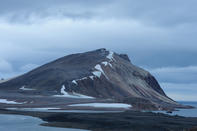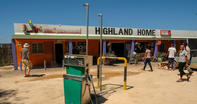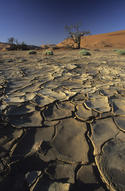Perspectives
Were you around to remember the 1970’s? The seventies were about the rise of Black Consciousness and the death of Steve Biko; the Soweto riots; John Vorster and PW Botha; rural removals; independence for Mozambique and Angola, the arrival of television and the reign of Springbok Radio; disco and drive-in movies.

The decade started with the death of Jimi Hendrix and the reign of Chairman Mao. It ended with the rise of Maggie Thatcher. Leonid Brezhnev returned somewhere in between. It was about 'glam rock' and David Bowie's Ziggy Stardust; Nixon and Watergate; the end of the Vietnam War; the start of China's nuclear tests; Star Wars but not yet Reagan's Star Wars; Led Zeppelin and The Bee Gees; punk rock and reggae.
The pocket calculator but not quite the PC; the death of Elvis; It came after post-sixties free love but before AIDS-anxious eighties love. You may wonder about the relevance of all of this, but it's about context: The seventies was jam-packed with milestones. In 1973, Ethiopia plunged into a famine the likes of which the modern world had never before seen, splashed over the front pages of newspapers. World food security became the hot topic in an increasingly globalised media network.
The world also learned what happens when the oozing black lifeblood of industry is pinched off at the source. During the 1973 Yom Kippur War, OPEC countries reduced oil supplies to Europe and placed an embargo against the United States for its collaboration with Israel during the conflict. Oil prices quadrupled, crude oil supplies fell and, for a time, industrial nations staggered to their knees. British industry had to be reined in to a three-day work week. The US gas stations ran dry and recession spread across the globe.
Oil Crisis Begins

The first oil crisis, followed by another towards the close of the decade, bore witness to a new era in world politics. It also brought to startling light how fragile our industrial success is; how dependent its survival is on natural resources that lie in the hands of a few; and how there is by no means a limitless supply of the stuff. The 1970s heralded a new world-view. Neil Armstrong and the lads from NASA had spent enough time orbiting Earth and gadding about on the Moon to switch our perspective of life on the planet.
Suddenly 'not in my backyard' referred to a whole lot more than the bit of lawn you mowed once a week. Environmental awareness, which had surfaced in the sixties, picked up the pace in the seventies. Something else happened in the 1970s: the Northern Hemisphere was warming. There had actually been various ups and downs in the trend of boreal temperature in the preceding century but now scientists were beginning to understand what was going on.
Earth’s Rising Temperature

Global warming, or at least a suspicion of it, surfaced long before the 1970’s. The notion that the gases wrapped around the planet could trap the Sun's heat - the greenhouse effect - had been bandied since around 1824 when a French mathematician and physicist, Baron Jean-Baptiste Joseph Fourier suggested the idea.
Then, in 1896, the Swede Svante Arrhenius hypothesised that by pumping more carbon dioxide into the atmosphere through burning coal and other fossil fuels, the greenhouse effect could be enhanced. The human species, he asserted, could facilitate global warming. The broader scientific community dismissed the theory, saying that absorption of carbon dioxide by the oceans and plants would balance out any negative effects of burning fossil fuels.
Thermometers have been around since Galileo but accurate temperature measurement only dates back to about 1861. Few long-term records originated from the south, where most of the hemisphere is inaccessible Southern Ocean or icy Antarctic desert and the inhabited regions of the south did not have the strong tradition of modern science that was well established in the north.
Many records came from expanding cities where urban living is known to create 'heat islands' in which cars, industry and buildings generate and trap heat in a way that skews temperature recording. Picking through all this data, it became evident that temperature had climbed slowly and steadily through the late 1800s.
The World Began to Notice
Through the centuries, the scientific community continued to apply its communal mind to the problem of the changing climate. By the time the 1970s rolled in, it appeared that the cooling trend in the north had reversed and temperatures there were beginning to climb again.
Droughts and other extreme weather events, notably the famine in Ethiopia, had the media abuzz with speculation. The oil crises started people thinking about energy issues. A massive hole was found in a damaged ozone layer. The world was ready to start grappling with global climate change and protection of the atmosphere.
© Leonie Joubert